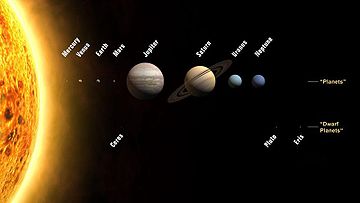Portal:Systems science
The systems science portal
 |
| Complex systems approach |
Systems science is an transdisciplinary[1] field that studies the nature of systems—from simple to complex—in nature, society, cognition, engineering, technology and science itself. To systems scientists, the world can be understood as a system of systems. The field aims to develop interdisciplinary foundations that are applicable in a variety of areas, such as psychology, biology, medicine, communication, business management, engineering, and social sciences.
Systems science covers formal sciences such as complex systems, cybernetics, dynamical systems theory, information theory, linguistics or systems theory. It has applications in the field of the natural and social sciences and engineering, such as control theory, operations research, social systems theory, systems biology, system dynamics, human factors, systems ecology, systems engineering and systems psychology. Themes commonly stressed in system science are (a) holistic view, (b) interaction between a system and its embedding environment, and (c) complex (often subtle) trajectories of dynamic behavior that sometimes are stable (and thus reinforcing), while at various 'boundary conditions' can become wildly unstable (and thus destructive). Concerns about Earth-scale biosphere/geosphere dynamics is an example of the nature of problems to which systems science seeks to contribute meaningful insights.
Selected article -

In mathematics, particularly in dynamical systems, Arnold tongues (named after Vladimir Arnold) are a pictorial phenomenon that occur when visualizing how the rotation number of a dynamical system, or other related invariant property thereof, changes according to two or more of its parameters. The regions of constant rotation number have been observed, for some dynamical systems, to form geometric shapes that resemble tongues, in which case they are called Arnold tongues.
Arnold tongues are observed in a large variety of natural phenomena that involve oscillating quantities, such as concentration of enzymes and substrates in biological processes and cardiac electric waves. Sometimes the frequency of oscillation depends on, or is constrained (i.e., phase-locked or mode-locked, in some contexts) based on some quantity, and it is often of interest to study this relation. For instance, the outset of a tumor triggers in the area a series of substance (mainly proteins) oscillations that interact with each other; simulations show that these interactions cause Arnold tongues to appear, that is, the frequency of some oscillations constrain the others, and this can be used to control tumor growth. (Full article...)Selected picture

Planets and dwarf planets of the Solar System; while the sizes are to scale, the relative distances from the Sun are not.
'WikiProjects
Selected biography -
Did you know
- ... that the American ecologist Howard T. Odum in 1950 gave a novel definition of ecology as the study of large entities (ecosystems) at the "natural level of integration".
- ... * continuing vertically with a science of design,
- ... * and next a science of action, called "Interactive management".
- ... that American systems theorist Debora Hammond in the new millennium explores new ways of thinking about complex systems that support more participatory forms of social organization?
Categories
Related portals
Topics
Tasks
 |
Here are some tasks awaiting attention:
|














